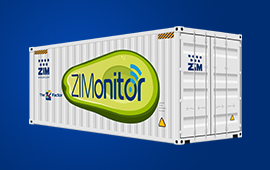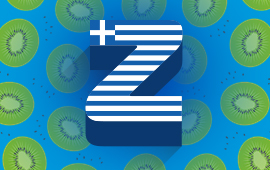Our Insurance Frees You Up
Picture this: You’ve just sent off a shipment of berries to the other side of the world. But your cargo is suddenly exposed to a great deal of risk due to unpredictable weather conditions as it moves through numerous ports in transit, which could ultimately endanger the fruit. What needs to happen to ensure your cargo reaches its destination fresh?
Let’s dive right into cargo insurance and loss prevention.
Refrigerated containers are a vital part of the global cold chain, but no matter the circumstances out at sea, temperature-sensitive reefer cargo of any size can be damaged or even lost, and this comes with heavy costs for all involved.
Smart risk management can safeguard shipments from loss or damage while in transit, so your goods are shipped off and delivered safely. There are many reasons why risk management is crucial throughout the supply chain – especially with high value cargo such as perishables, because maintaining their shelf-life requirements and meeting arrival deadlines is essential.
ZIM’s Cargo Claims Department based in Hong Kong, the United States and Israel, covers a wide network of destinations and is responsible for all damaged, lost, or unclaimed cargo from the time the claim is received until it is settled.
Weather is unpredictable, and things can go wrong at sea, which is why loss prevention measures must take place ahead of time. Yonatan Pelzmann – ZIM’s Cargo Claims and Loss Prevention Department Manager explains that in such cases, open communication is key: "When special or sensitive loads are about to be transported, we always consult and instruct on what needs to be done in terms of special insurance coverage. ZIM has strict procedures when handling reefer containers and we make it a priority to notify customers and contact all relevant stakeholders and operational authorities involved."
ZIM’s Cargo Claims department and reefer specialists manage and control the entire process and intervene when necessary to ensure that the goods arrive in optimal condition and in accordance with local regulations. Here are just a few examples:
- Stuffing and handling – The reefers are stuffed in accordance with strict specifications and made sure they are stacked on/under deck to avoid being exposed to high temperatures.
- Real-time monitoring at land and sea – The functionality of the reefer unit is checked regularly by the operational team on board to ensure that all requirements are met. If the container is onshore, inspection is documented at least three times a day.
- Activating "smart" reefers – ZIMonitor™ provides full access to humidity levels, power supply and alarms. By using this advanced system, resolving temperature deviations or disconnections can greatly contribute to preventing damage and loss.





